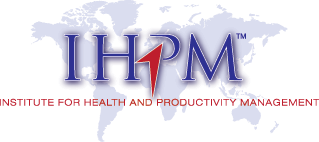Committed to Promoting Better Sleep Health and Wellness
The mission of the WorkPlace Center on Sleep and Health Wellness is to establish sleep as a pillar of workplace health alongside nutrition and movement.

Sleep: Foundational to Health, Safety, and Performance
Sleep and Fatigue in the Workplace
Setting a New Standard for Sleep Health Screening
The World Health Organization (WHO) calls sleep “a basic human need,” without which individual health, safety, quality of life, and performance are radically compromised. Yet, sleep—the third pillar of health and wellbeing—is mostly missing from leading corporate wellness programs.
Nearly half of working Americans report having sleep problems that affect their performance.
Lack of Sleep: Public Health Epidemic
The Center for Disease Control (CDC) declared insufficient sleep to be a public health epidemic in the US. Thirty percent of the population gets less than six hours of sleep nightly—with insomnia impacting one in eight adults.
Sleep supports essential brain and nervous system functions, allowing recovery from the stresses of daily life, and strengthens the body’s immune response to infection and inflammation. Individuals sleeping less than seven hours were nearly three times likelier to suffer colds than those sleeping eight hours or more.
Research associates short sleep time with increased BMI, as sleep deprivation reduces the ability to metabolize glucose as well as increasing appetite levels and stress hormones.
Sleep promotes heart health. Multiple studies show that insomnia increases the risk of heart attack by 27 to 45%, and chronic insomnia sufferers have thrice the risk of heart failure.
Sleep deprivation can damage mental health because sleep regulates the flow of brain chemicals such as dopamine and serotonin, which are closely linked to mood and behavior. Employees who suffer from insomnia have a higher risk for major DEPRESSION and ANXIETY.
Obstructive Sleep Apnea
Harvard Medical School estimates $3,200 to $4,000 of incremental annual health care costs per capita for unmanaged moderate-to-severe OSA: National lost-time costs of associated absenteeism and workplace accidents range from $10 to $35 billion.
Employees diagnosed with insomnia have higher total medical and drug costs than workers generally:
The larger but less understood economic costs result from the impact of insomnia and sleep deprivation in lost time and reduced productivity at work:
What’s Keeping You Awake?
Learn the importance of thoughts, exercise, and “where you sleep” - Click Here


